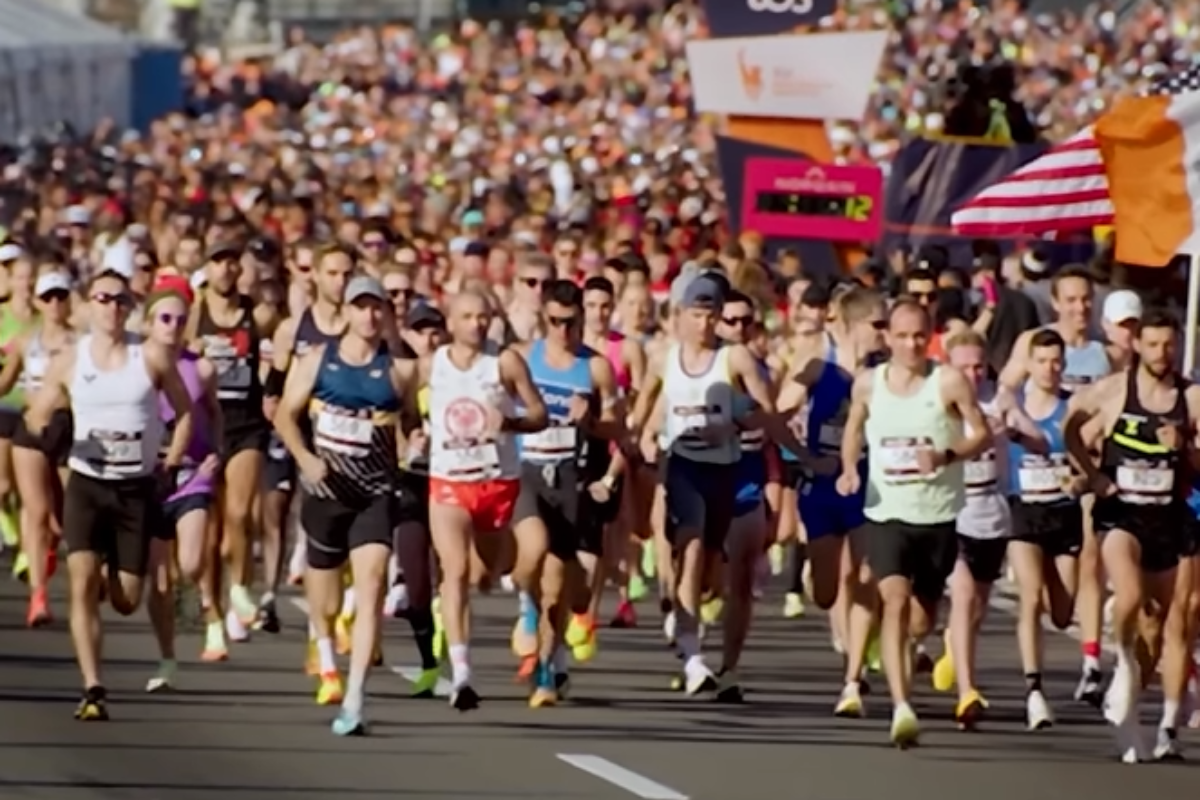
Imago
Credits: Instagram/ TCS NYC Marathon

Imago
Credits: Instagram/ TCS NYC Marathon

Imago
Credits: Instagram/ TCS NYC Marathon

Imago
Credits: Instagram/ TCS NYC Marathon
Every autumn, as tens of thousands of runners pour into the streets of New York, the 26.2-mile sweep across the five boroughs is punctuated by one tangible souvenir. And that’s the finisher’s medal. This year, 59,226 people finished the New York City Marathon. And it broke the world record for the largest marathon ever for the second consecutive year. However, not everyone who crossed the finish line at Central Park desires to keep the memento from the epic race.
Watch What’s Trending Now!
Just days after the 2025 TCS New York City Marathon, the medals surfaced for sale on platforms like Facebook Marketplace and eBay. CITIUS MAG recently shared a screenshot of an FB Marketplace post featuring a medal sale. They hilariously called it a “Limited edition – 1 out of 59,226” piece. And the condition of the medal? New and without any engravings. To simplify things, it’s a medal that anyone can claim for a low price and make it their own with customized engravings. The price tag? It’s only $100 (was previously $150) on the FB Marketplace. On eBay, people have listed their medals for a price ranging from $53 to $210.
Let’s understand this. For the 2025 NYC Marathon, more than 200,000 people applied to run, but only 2-3% of the applicants were selected for the marathon. And the rest would still wish for a finisher’s medal. But shouldn’t that increase in demand put a higher price tag on the medals? Well, not really! After analyzing the trend for the previous years’ medal sales, it’s clear that the marathon medals rarely fetched more than $100. Even a medal from the 1992 Vintage New York Marathon is listed at $74.99 on eBay. And a 2024 NYC Marathon medal is priced at $72.50. In case someone needs two medals, for 2024 and 2025, they’re listed at a total of $149.99. With over 50,000 medals issued, the supply is vast, eroding any notion of exclusivity.
Seen on Facebook Marketplace 🏅
Limited edition – 1 out of 59,226 pic.twitter.com/ru0QuVV9Ap
— CITIUS MAG (@CitiusMag) November 6, 2025
Secondly, for many runners, especially amateurs, the medal may be less a trophy than a token of completion. Once they capture it in a picture through a social media post, the physical medal becomes redundant. Additionally, the burden of shipping or storing such items dampens resale prices, especially when buyers recognise that the medal holds limited secondary-market prestige. Ultimately, the resale value drops below the production costs.
When every participant receives the same medal, scarcity gives way to ubiquity. And the medal’s emotional value depends less on resale potential and more on personal significance. The fact that some athletes choose to sell quickly may reflect an evolution: the medal represents the experience, the journey, the city’s streets, and not the metal itself. And the tough entry into the race further pushes the demand for a medal resale. Why? Let’s understand the trouble of gaining entry to the NYC Marathon.
How hard is it to run the New York City Marathon?
Securing a bib for the NYC Marathon is almost as demanding as the 26.2-mile run itself. The most common method of entering the race is through the general lottery, where only 2-3% of people get selected out of the tens of thousands of applicants. For many, receiving the confirmation email is as exhilarating as crossing the finish line in Central Park. But there are other ways for those who don’t want to rely on luck.
But they’re also equally demanding. For competitive runners who can meet strict standards, the NYRR extends an invitation. This is usually for the champions of the world, like Helen Obiri and Benson Kipruto. This qualification is solely based on their speed. But hope still lives for local runners. All they have to do is complete nine NYRR-scored races and volunteer once to gain access to the bib for the next year’s marathon. And many charitable trusts offer guaranteed entry to people in exchange for raising funds. However, non-US residents can purchase an international tour package with a guaranteed entry to the marathon, along with hotel and flight services.
In a race where earning a bib is nearly as hard as finishing the marathon itself, it’s no surprise that finisher medals find their way onto resale platforms. The sheer difficulty of entry adds allure to the medal, turning it from a personal keepsake into a symbol of rarity.

